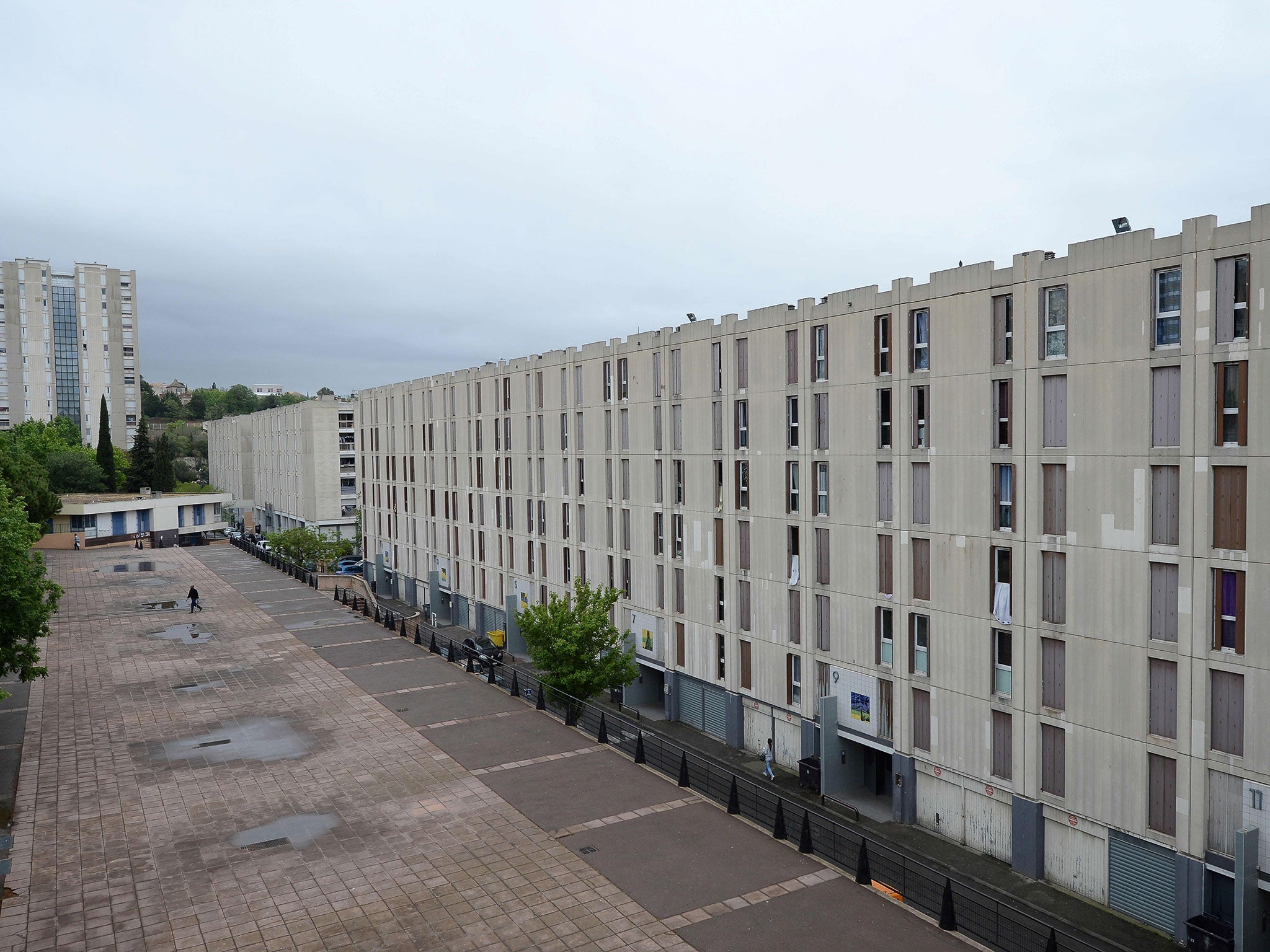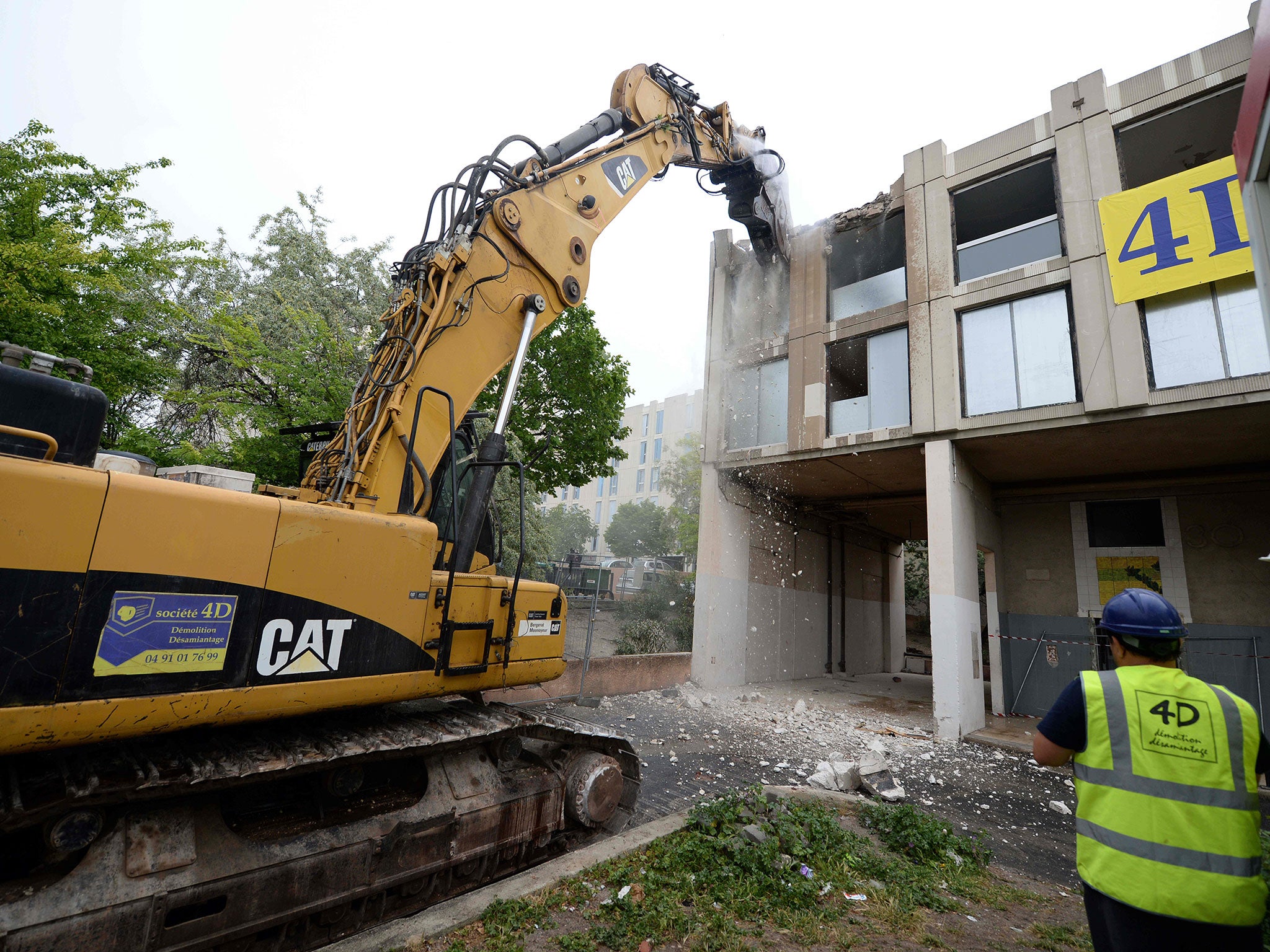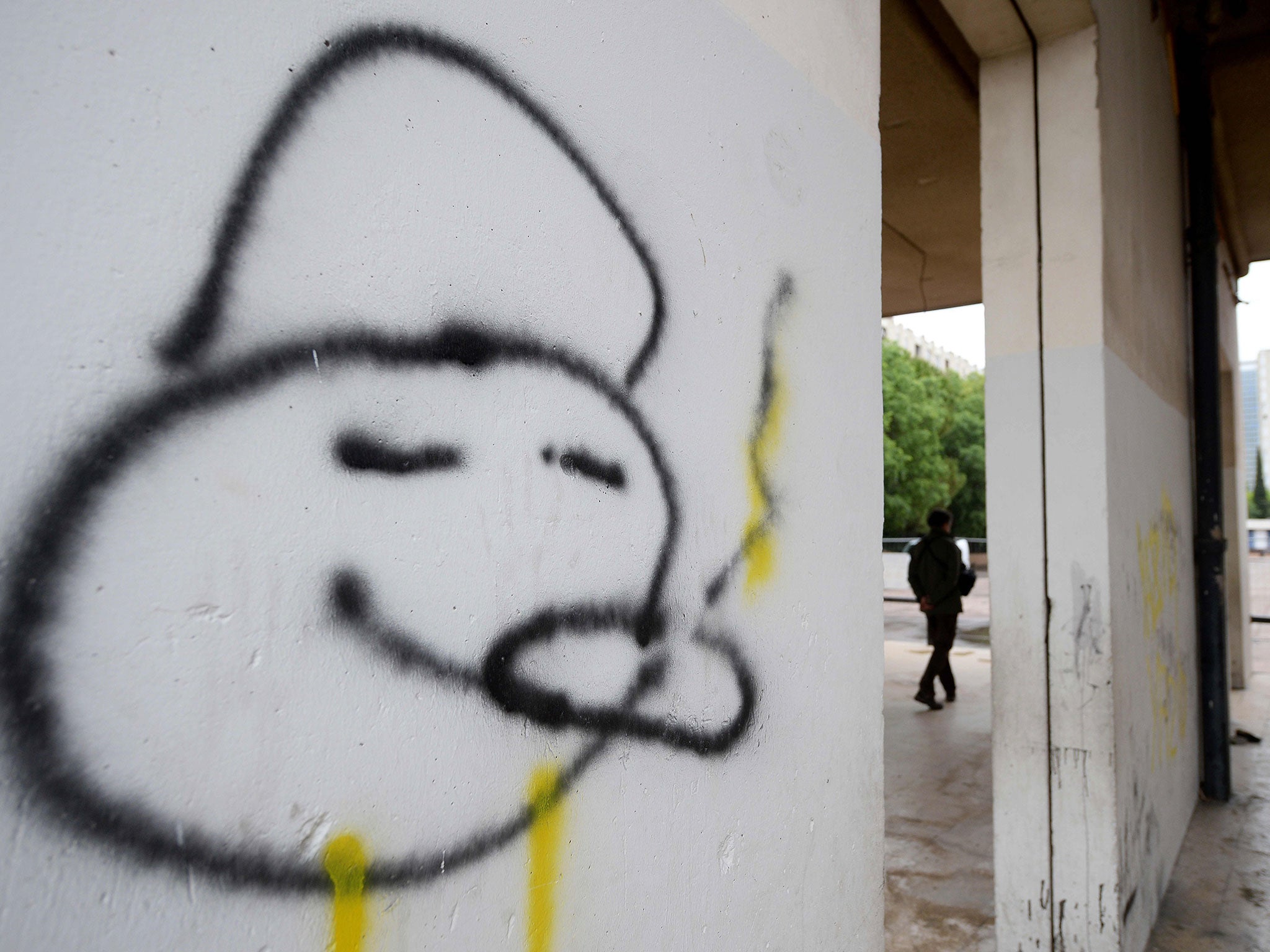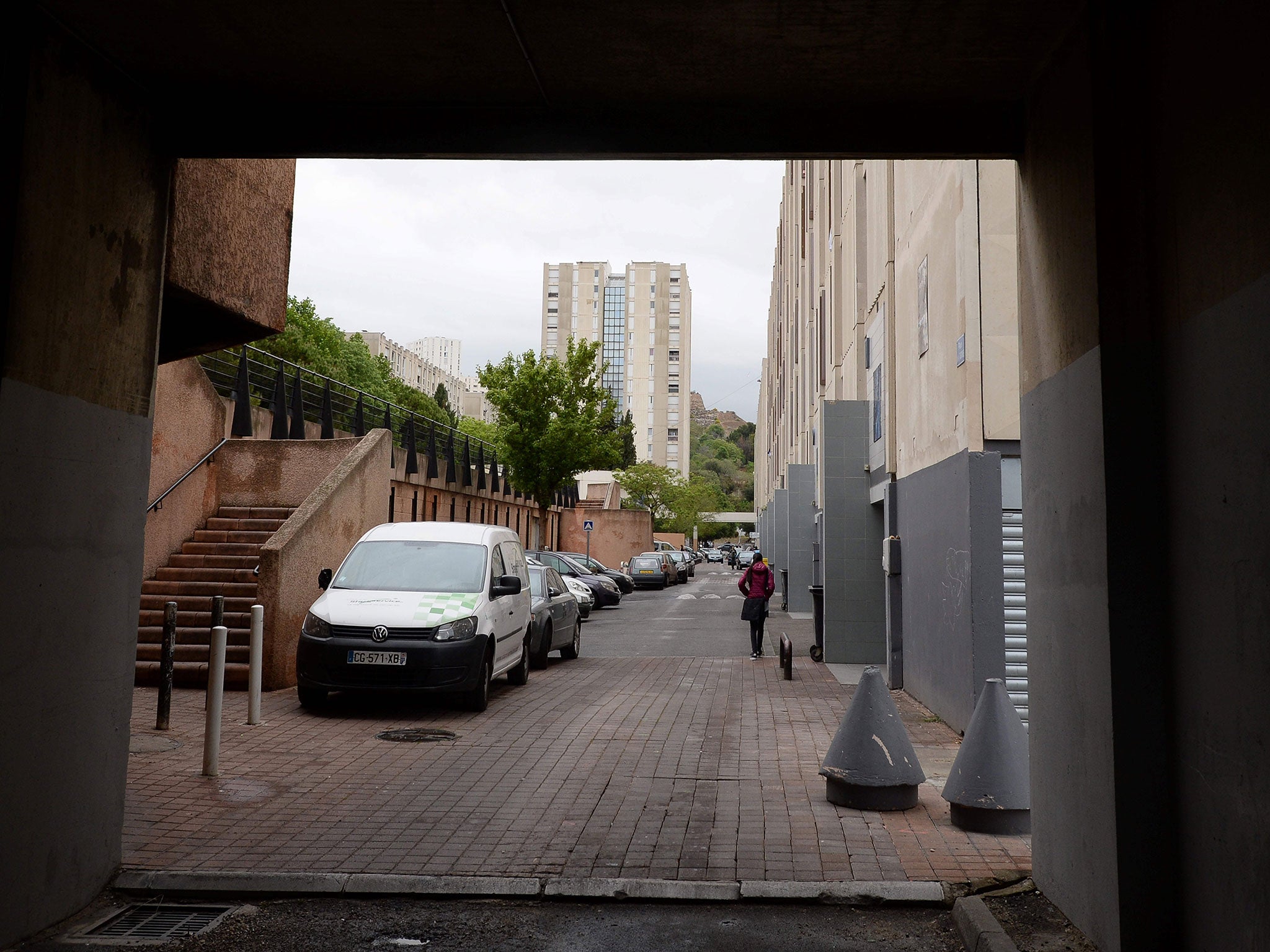Euro 2016: In the deprived city of Marseille the French national spirit of 1998 is nowhere to be seen
The complex racial matrix has made England’s fixture with Russia on Saturday the one which British police have most feared

Your support helps us to tell the story
From reproductive rights to climate change to Big Tech, The Independent is on the ground when the story is developing. Whether it's investigating the financials of Elon Musk's pro-Trump PAC or producing our latest documentary, 'The A Word', which shines a light on the American women fighting for reproductive rights, we know how important it is to parse out the facts from the messaging.
At such a critical moment in US history, we need reporters on the ground. Your donation allows us to keep sending journalists to speak to both sides of the story.
The Independent is trusted by Americans across the entire political spectrum. And unlike many other quality news outlets, we choose not to lock Americans out of our reporting and analysis with paywalls. We believe quality journalism should be available to everyone, paid for by those who can afford it.
Your support makes all the difference.The taxi driver won’t venture beyond the periphery of the Marseilles suburb where Zinedine Zidane was born. “They don’t like the sign on the top. They think it’s like police,” he says, gesturing at the roof of his car. The graffiti which states ‘nique la police’ (’f*ck the police’) when we’re half a mile up the hill towards disintegrating concrete tower of the place, La Castellane, bears out his concern. “Here’s the school. I’ll drop you,” he says abruptly and is suddenly gone.
People gather outside in the heat of the afternoon and because there is not that eerie desertion of the ghetto, it doesn’t seem a place to fear. Yet the sense that individuals are watching comes on quickly. A young man, late teens, appears from nowhere. “Vous habitez ici?” he asks, scowling, gesturing that people don’t walk in and take notes here. Diplomatic words and the stuffing away of a notebook don’t placate him.
Another watchman leans on a scooter further up the hill, so I cut through a passageway between tenements to evade both and a pattern develops. Another boy waits on another street - hollering into the area behind him as I approach, which brings out yet another individual, wearing luminescent shades over a balaclava, riding a scooter and asking: ‘Why are you here?’
Another hasty exit, towards a Carrefour hypermarket back down the hill. Scooter man waits and watches, engine on. It’s a five-minute walk down to the Carrefour and he’s still there at the end of it when I disappear into the sanctuary of the store. You don’t walk the streets of La Castellane.
Such is the city that the world will not see when England’s European Championships campaign begins against Russia here on Saturday night. There are, in effect, two Marseilles - the beautiful, cultivated Mediterranean place being promoted in Euro 2016 literature – a TGV leaflet quotes Gustave Flaubert - and the hard, desolate, unsparing citees upon the hill. The view from up there - of the glittering waters of the Mediterranean and the cruise liners which have docked - simply mocks the desolation.
The glitter of international tournaments always shows up the great divides of nations, though even the squalor of Brazil’s favelas before the 2014 World Cup, with their lack of sanitation and electricity, did not provoke a hate and suspicion of the outsider quite like this. The citees have produced footballers for the national team in recent generations - Eric Cantona and Samir Nasri, as well as Zidane – though the social dislocation has never left them.
So though the security in Marseilles is tighter because of the present terror threat, you don’t find police vans on the streets of La Castellane - a bizarre landscape of abandoned shopping trolleys and discarded chairs from three-piece suites which have given up the ghost, where drug dealers wage a turf war over supply spots. “Le Gun” states another popular graffiti legend, daubed in several places across the landscape. When prime minister Manuel Valls was last due to visit, gunmen shot at police with Kalashnikovs. His plan to improve the place entails knocking down the tower blocks and the wrecking ball was doing its work on Thursday, in what is €1.4m project. Taking a note of the details brought the first sentry out.

The segregation runs on racial lines, too. North African settlers – the so-called pied-noirs, who flooded home in the 1960s when France gave up colonial control of Algeria, Morocco and Tunisia - are absorbed into the multicultural melting pot which this great Mediterranean city has always been - looking out, never in. But the Moroccan taxi driver, who has worked the city for 30 years, knows where he won’t be welcome buying a house: the middle class southern fringe. He lives up in the north, too.
The latest of the demonstrations against the French government’s detested reforms to labour laws took place on Thursday morning – and the most significant aspect was the almost entire absence of non-white faces among 200 who marched through the city. The populations of Marseilles’ black African enclaves, like the Somalian Saint-Barthelemy district, are entitled to protest yet lack the voice that they need more than any.
“Unemployment in Saint-Barthelemy is 30 per cent” says Eric Garcia, one of the protest leaders. “Many, many people there are in great difficulty. Ninety per cent of them are normal, trying to bring up children well, but it’s difficult. You think you are in Africa when you go there.”

So can he and I go there together? I ask. “Il faut etre connu,” he says. “Il faut montrer patte blanche.” ‘You must be known. You must show your credentials.’
The struggle of so many goes some way to explaining why there are no flags flying for France this weekend in La Castellane. A scant few wear the shirt of the beloved Olympique Marseilles. There is a ‘Messi’ Barcelona top and a Chelsea top. But Les bleus don’t feature up on the hill.
When France last staged an international tournament – the 1998 World Cup – football seemed to have helped salve the great social and racial divides and make things different. Jean-Marie Le Pen's National Front had secured sweeping electoral advances as that tournament approached, but Aimé Jacquet's multi-ethnic squad - the so-called Black, Blanc, Beur (Black, White, Arab) - gradually showed another way. There was Lilian Thuram, born in Guadeloupe and a strong voice for the minorities; Patrick Vieira born in Senegal; Marcel Desailly, a son of Ghana. And Zidane.

Those boys seemed to embody of a new French identity – “something that chimed with the most exalted ideas of the Republic's founding fathers," as Phillippe Auclair puts it in ‘Lonely at the Top’, his brilliant biography of Thierry Henry, whose own ethnicity added to the whole intoxicating notion when Didier Deschamps lifted the trophy. But at the South Africa World Cup, 12 years on, that unit fell apart, riven by factionalism. Though the presence of Paul Pogba, Anthony Martial and N’Golo Kante reflect the multi-cultural make-up of the 2016 edition, it no longer seems emblematic of a new beginning. The omission of Karim Benzema because of his alleged attempted blackmail of a teammate over sex tape has been seen by some in this city as racially motivated. "The miracle of 12 July" – as Auclair described the day France lifted the greatest football prize of all – seems a very distant memory.
The complex racial matrix has made England’s fixture with Russia here the one which British police have most feared. There is potentially history where England and the local Tunisian community is concerned – the pitched battles which preceded the two teams facing each other in the 1998 World Cup. It was the French, as much as the Tunisians, whom English hooligans were fighting against that day, but British officers are not disregarding the history as a possible flashpoint.
The extreme violent tendency of some Russian fans is another concern, with no clear sense of the capability of the Russian police officers sent here to liaise with local forces. By Thursday night, no Russian fans seemed to have arrived. The sheer volume of people, many out celebrating Ramadan in the weekend sunshine, most concerns British officers – and led to Thursday night’s clashes between English fans and locals. The English had been drinking and singing in the Queen Victoria pub in the old port from mid-afternoon and were still audible half a mile away at 11pm.
Marseilles’ struggles lie deeper than one football match, in any case. The only safe way to understand the city’s bleak no-man’s land is by taking a bus – the number 30 from the Bougainville metro station, the northern terminus of the metro system, five kilometres from the city centre. The journey is a meandering trip through casually discarded rubbish, factories, more ‘nique la police’ messages and, amid the destitution of the La Savine community at the journey’s end, a sign pleading for the preservation of a basic children’s playground. ‘Respecter les lieus SVP.’ A woman of North African extraction embarks at this place. “Spain,” she says, breaking into a smile when asked if she will be shouting for France. “Spain. Such beauty. Such a place. A place where I dream of going.”
Join our commenting forum
Join thought-provoking conversations, follow other Independent readers and see their replies
Comments